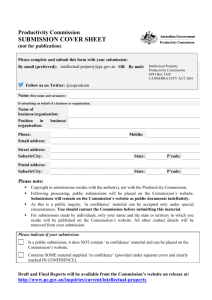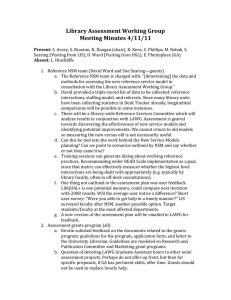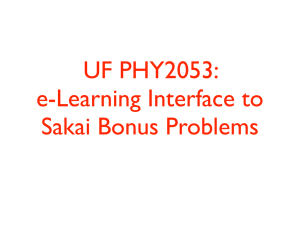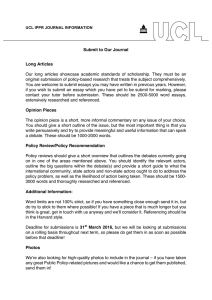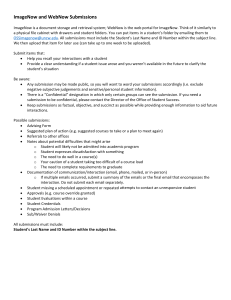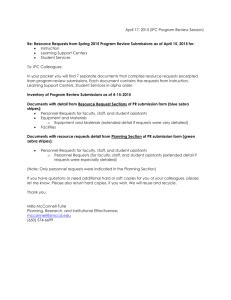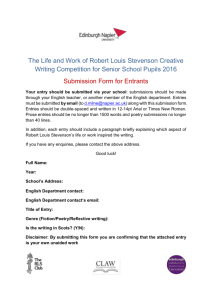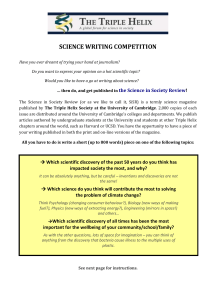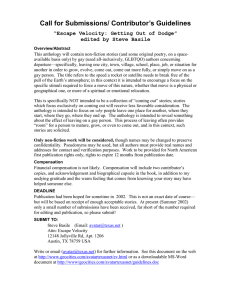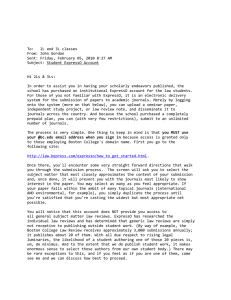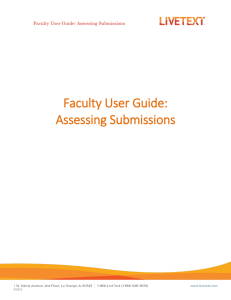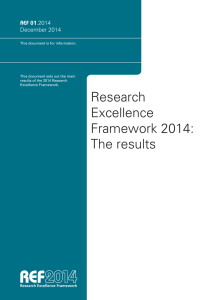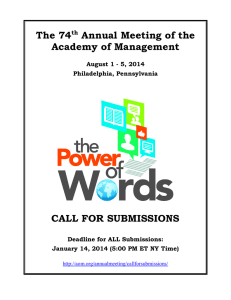Library Assessment Working Group Meeting Minutes 3/14/11
advertisement
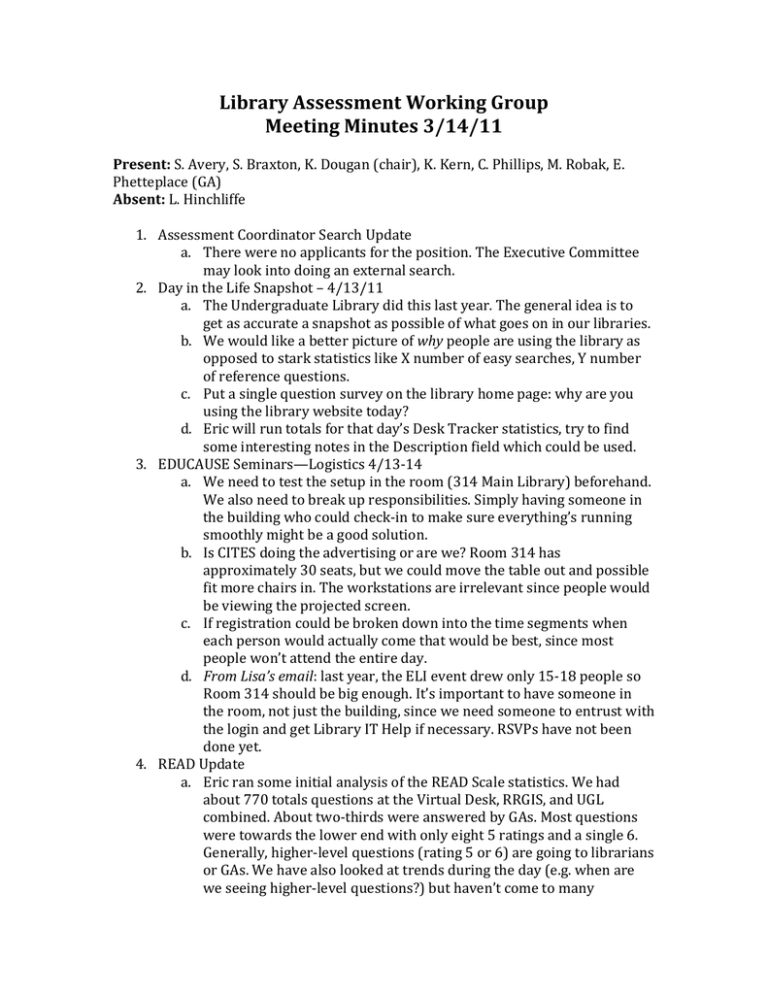
Library Assessment Working Group Meeting Minutes 3/14/11 Present: S. Avery, S. Braxton, K. Dougan (chair), K. Kern, C. Phillips, M. Robak, E. Phetteplace (GA) Absent: L. Hinchliffe 1. Assessment Coordinator Search Update a. There were no applicants for the position. The Executive Committee may look into doing an external search. 2. Day in the Life Snapshot – 4/13/11 a. The Undergraduate Library did this last year. The general idea is to get as accurate a snapshot as possible of what goes on in our libraries. b. We would like a better picture of why people are using the library as opposed to stark statistics like X number of easy searches, Y number of reference questions. c. Put a single question survey on the library home page: why are you using the library website today? d. Eric will run totals for that day’s Desk Tracker statistics, try to find some interesting notes in the Description field which could be used. 3. EDUCAUSE Seminars—Logistics 4/13-14 a. We need to test the setup in the room (314 Main Library) beforehand. We also need to break up responsibilities. Simply having someone in the building who could check-in to make sure everything’s running smoothly might be a good solution. b. Is CITES doing the advertising or are we? Room 314 has approximately 30 seats, but we could move the table out and possible fit more chairs in. The workstations are irrelevant since people would be viewing the projected screen. c. If registration could be broken down into the time segments when each person would actually come that would be best, since most people won’t attend the entire day. d. From Lisa’s email: last year, the ELI event drew only 15-18 people so Room 314 should be big enough. It’s important to have someone in the room, not just the building, since we need someone to entrust with the login and get Library IT Help if necessary. RSVPs have not been done yet. 4. READ Update a. Eric ran some initial analysis of the READ Scale statistics. We had about 770 totals questions at the Virtual Desk, RRGIS, and UGL combined. About two-thirds were answered by GAs. Most questions were towards the lower end with only eight 5 ratings and a single 6. Generally, higher-level questions (rating 5 or 6) are going to librarians or GAs. We have also looked at trends during the day (e.g. when are we seeing higher-level questions?) but haven’t come to many 5. 6. 7. 8. conclusions yet b. RRGIS & BEL are continuing the pilot to the end of the semester. IDEALS Update (Robak) a. Michael provided a handout detailing the planning behind IDEALS, who monitors submissions, a mission statement, and submission workflow. b. When a submission is sent to the community, all editors are notified by email. But once one editor picks something up, the others are not notified that the submission has been handled. c. Should all library faculty be allowed to submit to the collection? Then they would not have to ask for approval. We can remove items that we don’t want in the community whilst still leaving them in IDEALS. d. Letting people to submit directly will encourage more submissions. Unless there is a problem with too many irrelevant items, we will leave it open. e. Action Item: Michael will change the submission process to automatically accept all library faculty submissions. LAWG will send emails to Libfac-L and Libnews-L to solicit submissions. GPO Survey. We may want to talk to Mary Mallory in the future but it isn’t known whether the data from the survey will come to us. Other interim service work aside from LibQUAL+, similarly large-scale surveys. We will probably not repeat the graduate student, undergraduate, and faculty surveys of 2004 through 2006. It took almost two years to do these surveys using in-house resources. Assessment Grants a. Should we try to resurrect the idea to have our own assessment grants program? General consensus that the program is a good idea. b. What would the money be used for? Things that the Research and Publication Committee would not cover. Survey Research Lab is one example, or a particular instrument like WOREP (which the Music Library used). RPC is more focused on work that yields research, as opposed to projects that are focused on improving specific services. c. Another good question: should we set a maximum amount on grants? Request a lower amount of money, like $3,000, and use it all. We could investigate if other libraries have anything similar, send a call out to pertinent listservs. d. Action Item: Kirstin will find the documents relating to this program and pick up the conversation over email.
